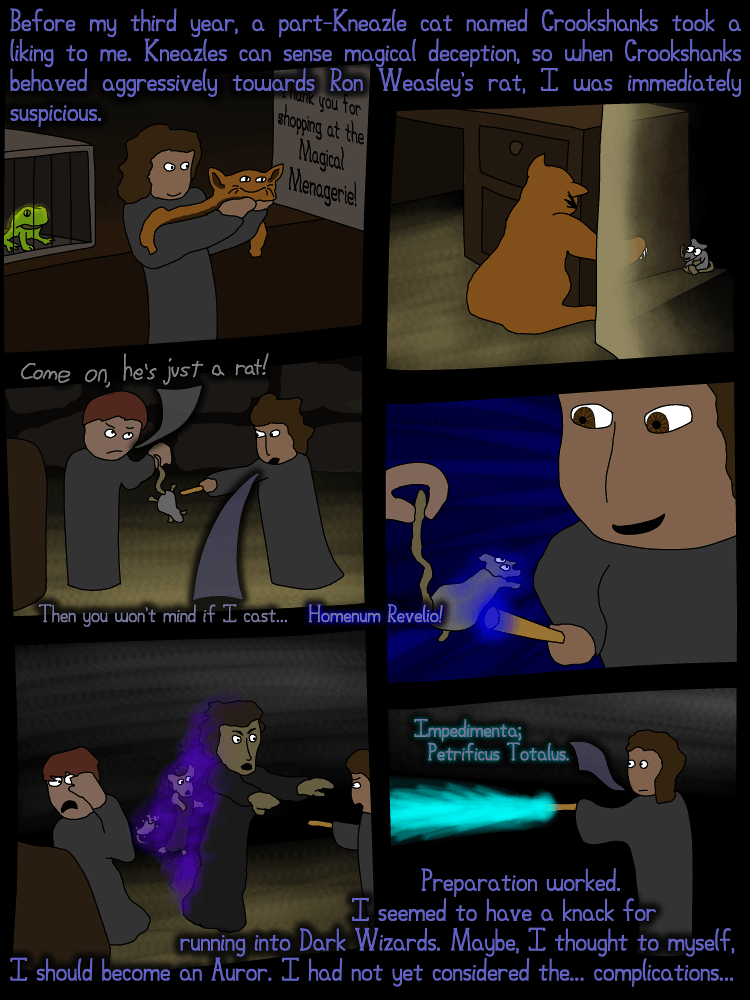In the magical world, not knowing that Kneazles can detect magical deception is like not knowing that cats purr. People tend to laugh at you if you don't know it. In this particular case, that means that people tend to laugh at Muggle-borns.
Laughing at people who lack cultural knowledge is a form of discrimination in real life, too. Try not to do it.
Granger mentioned that fact because ze thought Harry might not know it, given Harry's history. But what if Harry does know, and feels insulted by the implication that ze wouldn't? But if Granger didn't say it, what if Harry doesn't know, and gets confused by the story?
How do you decide how much of the cultural context to explain when you say things to people?
Approximate readability: 6.30 (566 characters, 130 words, 9 sentences, 4.35 characters per word, 14.44 words per sentence)
 encourage me
encourage me


Comments
I feel like XKCD #1053 is relevant here.